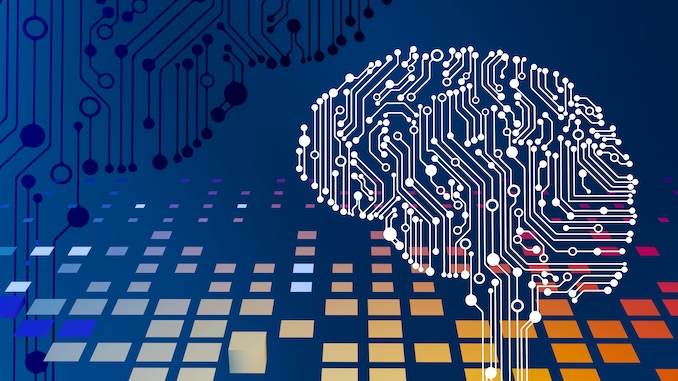Machine learning algorithms, referred to by the general public as Artificial intelligence or AI, are currently a hot topic on the tech scene and across different industries.
It’s transforming the traditional way things are done across the globe, offering numerous benefits such as increased efficiency, improved decision-making, and better customer experiences.
As AI technology evolves further, certain sectors are poised to benefit more than others, especially the ones dealing with data and its processing.

However, which industries are more likely to gain the most from AI adoption, and which ones will likely see it as a drawback? Let’s see.
Healthcare
Healthcare is among the industries that have already benefited a lot from AI.
AI algorithms are capable of processing medical information in an attempt to provide more accurate diagnoses and individualized treatment and have proven useful for storing and processing patient data.
For instance, AI can help doctors identify patterns in patient information that are not apparent to the human eye, improving patient outcomes.
The same technology has been utilized in the field of medical research to accelerate the identification of new drugs and treatments.
Finances
The banking sector is another enormous recipient of AI for it’s processing capabilities.
AI can automate functions such as data analysis, risk analysis, and portfolio management, which can help make financial operations more efficient and less vulnerable to human errors.
AI systems can also be utilized to identify suspicious transactions by analyzing patterns in financial transactions and serving to alert agents where to focus their attention.
The Gaming Industry
In addition to vital sectors like the previously mentioned ones, the entertainment industry has also been a fertile ground for AI.
Inside the gaming industry, developers are adopting AI in various ways. They use it to optimize games and reduce tasks that are considered “chores.”
Other examples include AI being used to generate terrain, buildings, or even whole cities automatically, reducing the workload of game developers. The non-player characters (NPCs) can be made more intelligent and life-like using the same technology and the process after the game is finished, like automatic bug testing before release.
A notable example of this developing tech in gaming is Nvidia’s Deep Learning Super Sampling (DLSS) and AMD’s FSS, which use AI to upscale game graphics. By rendering frames at lower resolutions and then reconstructing them to higher resolutions, these technologies improve performance and image quality, allowing for smoother gameplay and better visuals even for weaker PC builds.
AI has already been applied to many areas of the gaming business, including iGaming and online gambling platforms. They can now analyze gamers’ behavior to offer games that suit each player’s taste and style. But if you wish to personally find an online casino that would suit your needs and style, the list of Best Online Casinos Canada has you covered, with unique offers for new users.
Although many fear that the use of these algorithms may threaten jobs, it is important to remember that they will not replace the creative work of human developers and designers.
Manufacturing
Manufacturing is also another industry where AI is making its presence felt, used in predictive maintenance, inventory management, and process optimization.
By analyzing machine sensor data, factories can predict when maintenance will be needed, thereby preventing downtime and increasing productivity.
Quality control can also be improved where identifying defects can be done at an early point in the manufacturing process, making it possible to have it corrected on time.
Retail and E-commerce
In e-commerce and retail, the application of AI is customer experience personalization through one-on-one marketing and product suggestions.
AI-based inventory management systems enable retailers to better manage inventory, eliminate waste, and optimize supply chain effectiveness. AI-based chatbots help with basic customer questions.
Cybersecurity
Important in cybersecurity for enhancing threat detection and response time.
AI algorithms can be applied to analyze network traffic to identify potential real-time threats, allowing for quicker response times and enhanced protection against cyberattacks especially for online services where it’s important to be protected from financial loss and confidential information leakage.
Potential Disadvantages
Like with any new and promising technology, where there are many benefits, there are also drawbacks.
One of the main issues is the job loss. As AI performs more work, some jobs might become redundant. However, it is also estimated that AI will create new employment opportunities in fields related to AI development and maintenance.
The second issue is the ethical use of AI. There are fears that AI algorithms may be biased, resulting in discriminatory outcomes in use cases like hiring or lending. Providing transparency and fairness to AI systems for mass application must be an imperative.
AI is at the moment transforming sectors that primarily deal with data, making them more efficient and customer orientated.
Despite the negative risks involved, the benefits of embracing AI supersede the risks for most industries and has proven that it works the best when paired with human touch.
As technology with AI continues to improve, it will be interesting to see how industries evolve and respond to these technologies.




